Key Takeaways:
- It’s critical to understand the terms in this Financial Independence Glossary to achieve your goals of money mastery.
- Understanding this terminology will give you a firm grasp on saving, making, investing much more money, and retiring as early as 30.
- Exposure to these FIRE definitions will also broaden your horizon and help you brainstorm so you can fine-tune your financial strategies and live the life of your dreams.
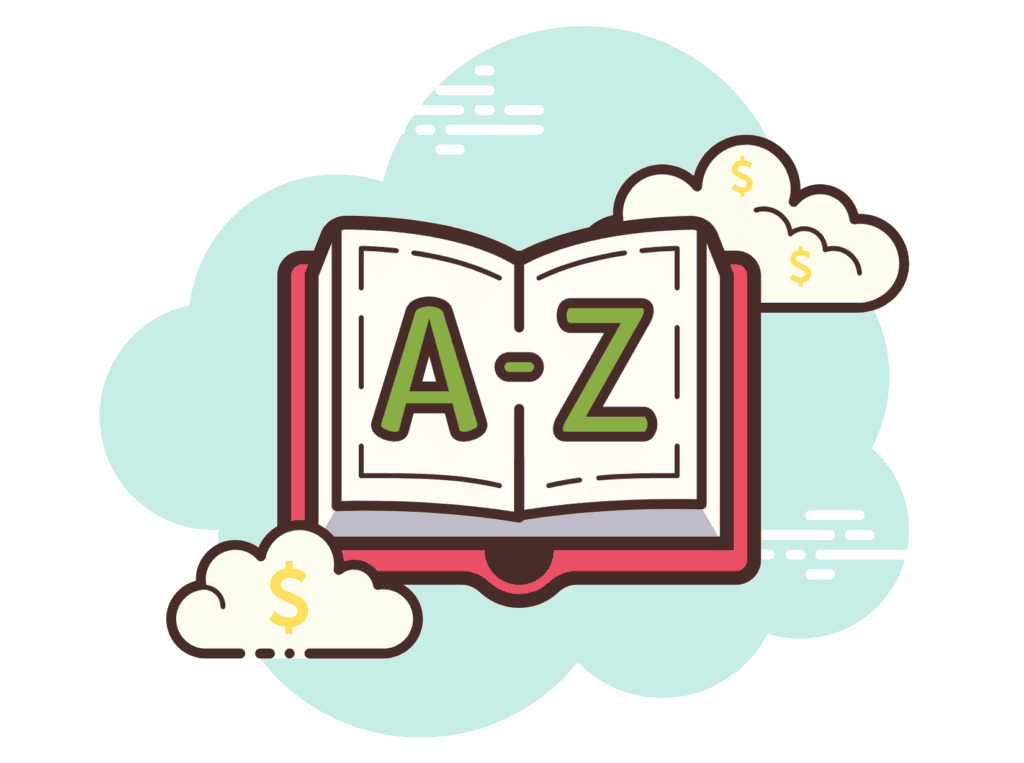
If you’re looking for a way to master your money and live your dream life, you better find a financial independence glossary and study it.
How do you do that, you ask? Look no further!
Here we’ll go over a laundry list of important financial independence terms to help you save, make, and invest more money.
So if you’re interested in finding out what house hacking, FU Money, and other FIRE movement words are, check out the helpful blog below.
Enjoy!
Financial Independence Terms (Essential for Personal Finance Mastery)

25x Rule
The 25x rule is a guideline that suggests you need to have 25 times your annual expenses saved before you can retire comfortably.
401(k) Plan
A 401(k) is a retirement savings plan sponsored by an employer. It lets you set aside money from your paycheck to be invested in a tax-deferred account.
403(b) Plan
A 403(b) plan is a retirement savings plan available to certain employees of public schools, cooperative extension services, and nonprofit organizations.
4% Rule
The 4% rule is a guideline that suggests you can withdraw 4% of your retirement savings every year without running out of money.
Adjusted Balance Method
The adjusted balance method is a way of calculating interest on credit card accounts. It considers the payments and credits applied to the account since the last billing cycle and applies interest to the remaining balance.
Adjusted Gross Income
Adjusted gross income (AGI) is your total income from all sources minus certain adjustments. It is the starting point for calculating your taxable income.
AMEX
American Express is a financial services company that offers credit cards, charge cards, and traveler’s checks.
Amount Due
The amount due is the total amount you owe on your credit card account.
Annual Fee
An annual fee is a charge you must pay every year for using a credit card.
Annual Percentage Rate (APR)
The percentage of interest that accrues on a credit card over one year.
For example, if you have a credit card with an APR of 15%, and you are loaned $2,000, you would owe $2,300 at the end of the year.
Annual Percentage Yield (APY)
The percentage of interest that accrues on the savings account for one year.
For example, if you have a savings account with an APY of 1% and deposit $2,000, you would earn $20 in interest at the end of the year.
Annual Report
A company annually issues a financial statement detailing its financial performance and position.
Annuity
An annuity is a financial product that pays out a fixed income over time. For example, a life insurance policy is one type of annuity.
Assets
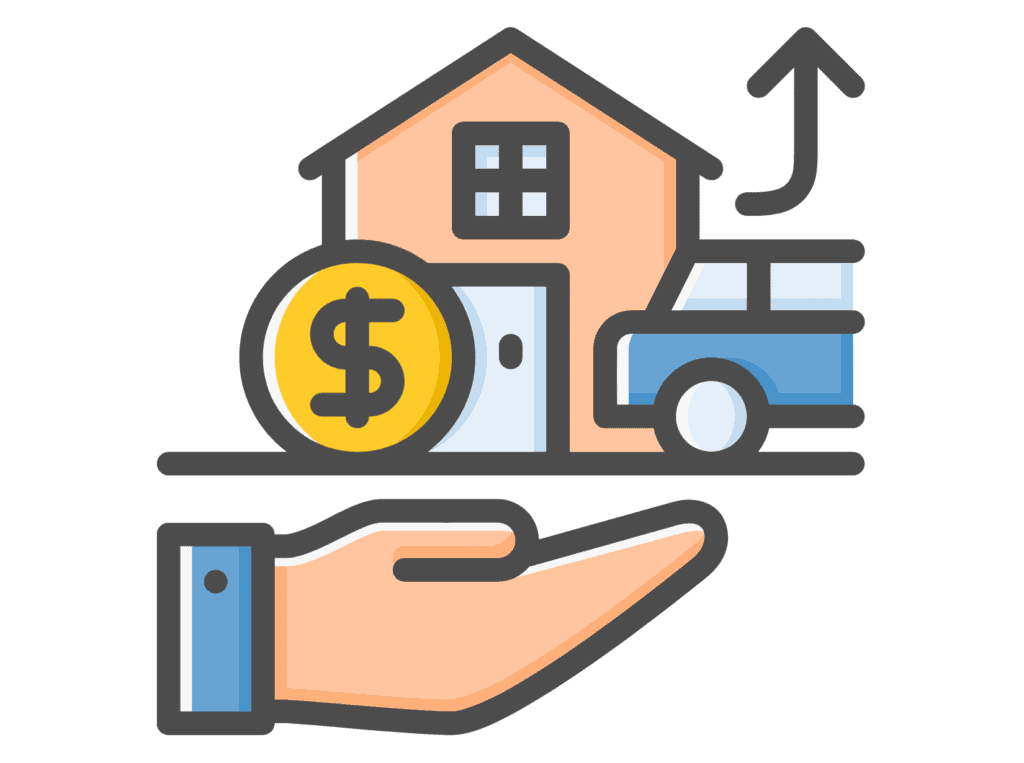
Anything of value that you own. Your home, savings, and investments are all examples of assets. Some say an object that brings in money, as opposed to costs money to keep or maintain.
At The Market
An order to buy or sell an asset at the best available price.
Automated Teller Machine (ATM)
A machine that dispenses cash and accepts deposits.
Automatic Deductions
Automatic deductions are payments taken out of your paycheck before receiving it. They can be for things like taxes, insurance, and retirement savings.
Available Credit
The amount of money you have available to borrow on your credit card.
Average Daily Balance
The average daily balance is the sum of your account balances divided by the number of days in the billing cycle.
Back-End Load
A back-end load is a fee charged when you sell an investment, such as a mutual fund.
Balance
The balance is the amount of money you owe on your credit card.
Balanced Fund
A mutual fund that invests in a mix of stocks and bonds. A life target date fund is an example of a balanced fund.
Barista FIRE
The FIRE movement, or “financial independence, retire early,” is when people save enough money to support themselves without working full-time jobs. Once they reach their FIRE number, individuals usually get low-stress or part-time jobs for an additional income stream or health insurance.
Bank
A financial institution accepts deposits, makes loans, and offers other financial services.
Bank Statement
A financial statement shows all the transactions in your bank account over time.
Bankruptcy
A legal process that allows you to have your debts forgiven or restructured. The types of bankruptcy are Chapter 7, Chapter 11, and Chapter 13.
Bear Market
A bear market is when the stock market is in decline. The dot com crash of the early 2000s was an example of a bear market.
Benefits
Benefits are payments made to you by an insurance company, such as health or life insurance.
Billing Cycle
The billing cycle is the period between two credit card statements. So, if you get a credit card statement on the first of the month, your billing cycle will be from the first to the last day of the month.
Billing Error
A billing error is when there is an error on your credit card statement. For example, if you are charged for a purchase, you did not make, that would be a billing error.
Blank Endorsement
A blank endorsement is when you sign the back of a check without putting in the payee’s name.
Blue Chip Stocks
Blue chip stocks are stocks of well-known companies with a history of profitability. These stocks are considered to be less risky than other stocks. Berkshire Hathaway and Coca-Cola are examples of blue chip stocks.
Bond Fund
A mutual fund that invests in bonds. VBTLX is an example of a bond fund.
Bonds
Bonds are a type of investment. When you buy a bond, you are lending money to the issuer. The issuer then pays you interest on the loan, and you get your money back at the end of the term.
Borrower
The borrower is the person who receives a loan.
Broker
A broker is a person who buys and sells securities on behalf of their clients. Morgan Stanley and Charles Schwab are examples of brokerages.
BRRR
“Buy, rehab, rent, refinance” is a strategy for real estate investing. You buy a property, fix it up, rent it out, and then refinance it to get your money back out.
Budget
A budget is a financial plan showing how you will receive income and expenses over time.
Bull Market
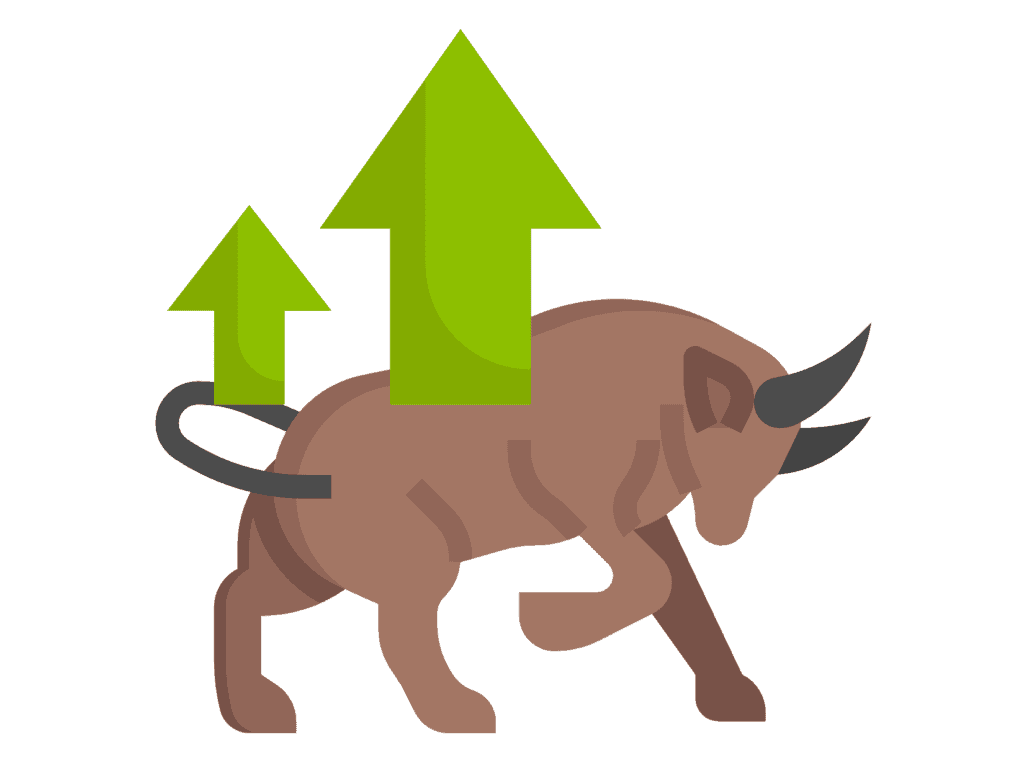
A bull market is when the stock market is doing well. For example, the bull market of the late 1990s was driven by the dot com boom.
Buy & Hold Real Estate
The strategy of buying a property and holding it for the long-term. The goal is to build property equity and generate rental income.
Business
An organization or enterprise that is engaged in commerce. Apple Inc. is an example of a business.
Canceled Check
A canceled check is a check that the bank has paid.
Capital
Capital is money or assets that can be used to generate income. For instance, a factory is a capital asset because it can be used to produce products that can be sold.
Capital Gains
Capital gains are profits that are made from selling capital assets. For example, if you buy a stock for $100 and sell it for $150, you have a capital gain of $50.
Capital Gains Tax
A capital gains tax is a tax on the profits from selling capital assets.
Capital Goods
Capital goods are physical objects used to produce other goods and services. For example, a factory is a capital good because it can be used to produce products that can be sold.
Cardholder agreement
The cardholder agreement is the contract between you and your credit card issuer. It outlines the terms and conditions of your credit card.
Cash Advance
A cash advance is when you utilize your credit card to get cash from an ATM.
Cash Flow (Positive)
Cash flow is the funds coming in and going out of your business. You have a positive cash flow if you have more money coming in than going out.
Cash Flow (Negative)
You have a negative cash flow if you have more money going out than coming in.
Cashier’s Check
A cashier’s check is a check that a bank provides. You would like us a cashier’s check if you need to pay for something and you don’t have the cash on hand.
Certificate of Deposit
A certificate of deposit is a savings account with a fixed interest rate and a fixed term.
Certified Check
A certified check is a check that has been confirmed or verified by the bank. For example, you would use one if you bought a big ticket item such as a home or a car.
Charge Card
A charge card is a credit card that you have to pay off in full every month.
Check Card
A check card is a debit card that you can use to get cash from an ATM or to make purchases.
Checkbook Register
The checkbook register is the record of all the checks that you have written.
Checking Account
A checking account is a bank account where you can deposit money and write checks against the balance.
Closed-End Credit
Closed-end credit is a loan with a fixed interest rate and a fixed term. For example, a mortgage is a type of closed-end credit.
Coast FIRE
Coast FIRE is a term used by some people to describe financial independence, which means you’ve accumulated enough invested or saved so that your portfolio will grow sufficiently to ensure that you can retire at the traditional retirement age without additional contributions.
Even though you continue to work, your only goal is to maintain your current lifestyle instead of saving money for retirement.
Co-Signer
A co-signer is a man or woman who agrees to be responsible for a loan if the borrower does not repay the loan.
Collateral
Collateral is an asset that can be used to secure a loan. For example, your home can be used as collateral for a mortgage.
Commission
A commission is a fee that is charged for services. For example, a real estate agent may charge a commission for helping you buy a house.
Common Stock
Common stock is a type of ownership in a corporation.
Compound Interest
Compound interest is when you earn interest on your principal plus any interest earned in the past.
Consumer
A consumer is someone who buys goods and services.
Consumer Price Index (CPI)
The Consumer Price Index is a measure of inflation.
Corporation
A corporation is a legal entity that is separate from its owners.
Credit
Credit is when you borrow money and agree to repay the loan with inter
Credit Bureau
A credit bureau is a company that keeps track of your credit history. Experian, Equifax, and TransUnion are three of the major credit bureaus.
Credit Card
A credit card is a type of credit. You can use a credit card to make purchases or cash from an ATM.
Credit History
Your credit history is a record of your financial activity. You can think of it as your financial report card. Experian, Equifax, and TransUnion are three companies you can check your history.
Credit Limit
The credit limit is the maximum amount of money you can borrow on a credit card.
Credit Repair
Credit repair is the process of correcting your credit history. Credit Saint is one company that specializes in credit repair.
Credit Report
A credit report is a record of someone’s entire credit history.
Credit Scoring System
A credit scoring system is a way to measure your creditworthiness. The score ranges from 300 to 850; the higher your score, the better.
Credit Union
A credit union is a financial institution that its members own.
Creditor
A creditor is a person or company to whom you owe money.
Creditworthiness
Creditworthiness is how likely you are to repay a loan. Your credit score determines it.
Dave Ramsey Baby Steps
Dave Ramsey is a financial expert who has a plan to help you get out of debt and become financially independent. The Baby Steps are:
- Save $1,000 for emergencies
- Pay off all debt (excluding your house) using the debt snowball method
- Save 3-6 months of expenses
- Invest 15% of your income in retirement
- Save for your children’s college education
- Pay off your mortgage
- Build enough wealth and give generously
Debit Card
A debit card is a check card you can use to get cash from an ATM or make purchases.
Debt
Debt is money that you owe to something or someone.
Debt Balance
The debt balance is the amount of money you owe on loan.
Debt Collector
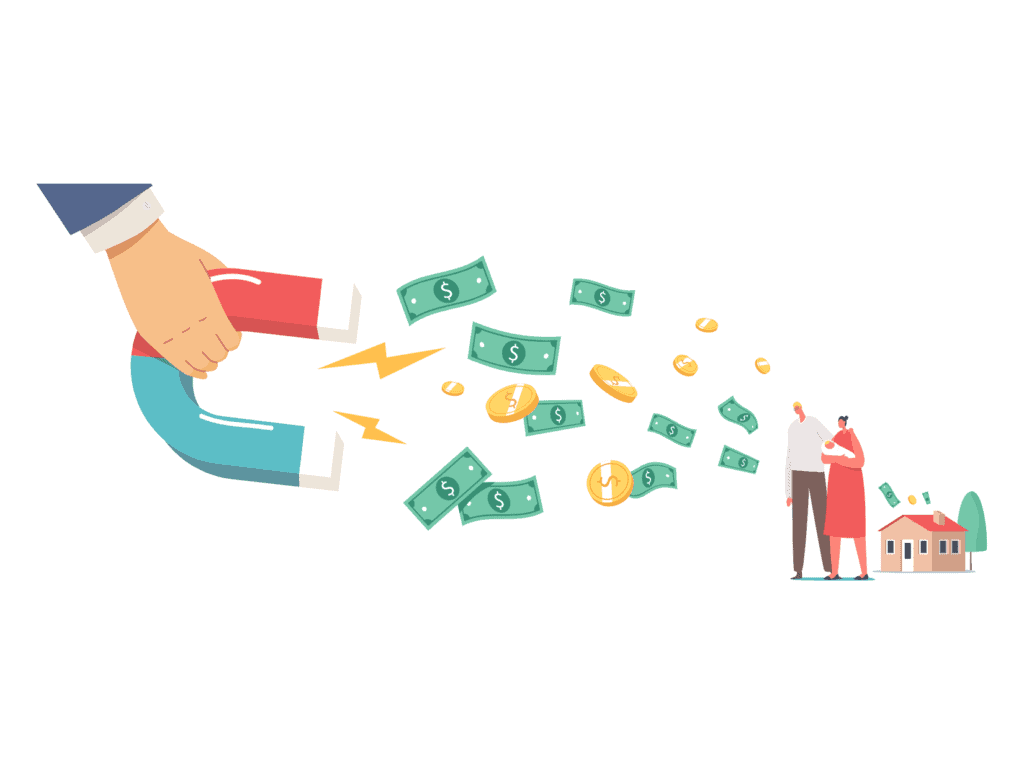
A debt collector is a person or company who tries to collect money that you owe.
Debt Consolidation
Debt consolidation is when you take out a new loan to pay off multiple debts. This can help you get a lower interest rate and make it easier to manage your payments.
Debt Load
Your debt load is the amount of money you owe about your income. So if you make $50,000 annually and owe $25,000, your debt load is 50%.
Debt Snowball
The debt snowball is a method of paying off debt. You start by paying off the debt with the smallest balance first. Then, once it is paid off, you move on to the next debt on your list.
Debtor
A debtor is an individual who owes money to someone.
Deductions
Deductions are expenses you can subtract from your income when you file your taxes. For example, a typical deduction is the mortgage interest deduction.
Default
Default is when you fail to make a payment on your debt.
Deferred Income
Deferred income is any money paid to you before you have earned it. For example, this could be in the form of rent payments received in advance or annual subscription payments made at the beginning of the year.
Deferred Taxes
Deferred taxes are taxes that you have not yet paid.
Depreciation
Depreciation is an accounting method where the expense of a tangible asset gets allocated over its useful life to calculate any losses in value over time.
Diversification
Diversification is when you invest in a variety of assets. This helps to reduce risk because if one investment decreases in value, the others may not.
Digital Nomad
A digital nomad works online and can live anywhere in the world.
DINK
DINKS stands for Dual Income, No Kids.
Discharged Debt
Discharged debt is debt that the creditor has forgiven. Bankruptcy can remove some types of debt.
Discretionary Income
Discretionary income is when you have money left over after paying your essential living expenses.
Disposable Income
Disposable income is when you have money left over after taxes. You can save, invest, or spend on non-essential or necessary things.
Diversification
Diversification is when you invest in a variety of assets. This helps to reduce risk because if one investment decreases in value, the others may not.
Dividends
Dividends are issued payments that a company makes to its shareholders.
Dollar-Cost Averaging
Dollar-cost averaging is when you invest a fixed amount of money into an investment at regular intervals. This helps minimize the risk of investing all at once.
Dow Jones Industrial Average
The Dow Jones Industrial Average is a stock market index that tracks the performance of 30 large companies.
Down Payment
A down payment is a money you pay upfront for a purchase. For example, when you buy a house, you typically need to make a down payment of 10-20%.
Due Date
The due date is the day you must make a payment.
Early Withdrawal Penalties
Early withdrawal penalties are fees you may have to pay if you withdraw money from an investment before a specific date.
Earnings Per Share
Earnings per share is a financial ratio that shows a company’s profit per share of stock.
Emergency Fund
An emergency fund is money that you set aside for unexpected expenses. A typical emergency fund is 3-6 months of living expenses.
ETF
ETF stands for exchange-traded fund. It is a type of investment that tracks a financial index or basket of assets. For example, VTI is an ETF that tracks the financial performance of the entire stock market.
Equal Credit Opportunity Act (ECOA)
The Equal Credit Opportunity Act forbids lenders from treating potential borrowers unequally based on race, color, creed, etc.
Equity
Equity is the value of your ownership of an asset. For example, if you own a house worth $200,000 and owe $100,000 on the mortgage, your equity is $100,000.
Fair Credit Reporting Act
The Fair Credit Reporting Act is a law that regulates the credit reporting industry.
Fat FIRE
“Fat FIRE” refers to having enough income from sources other than your job to do the things you enjoy without worrying about money. These splurges might include travel, gourmet food, or nights out in town.
Financial Advisers
Financial advisers are professionals who are there to help you make financial decisions.
Financial Independence
Financial Independence is when your income from investments, passive income sources, and other means is enough to cover your living expenses. This allows you to live without working or relying on others.
Financial Independence Retire Early
“FIRE” stands for Financial Independence Retire Early. This is a FIRE community of people who are working towards financial independence so that they can retire early.
Financial Freedom
Financial freedom is when you can make choices without worrying about money. Basically, allowing you to live your ideal lifestyle.
FIRE Movement
The FIRE movement is a group of people who are working towards financial independence so that they can retire early.
Fixed Expenses
Fixed expenses are expenses that stay the same monthly, such as rent or a car payment.
Fixed Interest Rate
A fixed interest rate is an interest rate that does not change over time—an ex. A 30-year fixed mortgage has an interest rate that will stay the same for the next 30 years.
Floating A Check
Floating a check is when you write a check for an amount you do not have in your account. This can lead to overdraft fees.
FOMO
“FOMO” stands for “fear of missing out.” It is the feeling of anxiety that you get when you think you are missing out on something.
Frugality
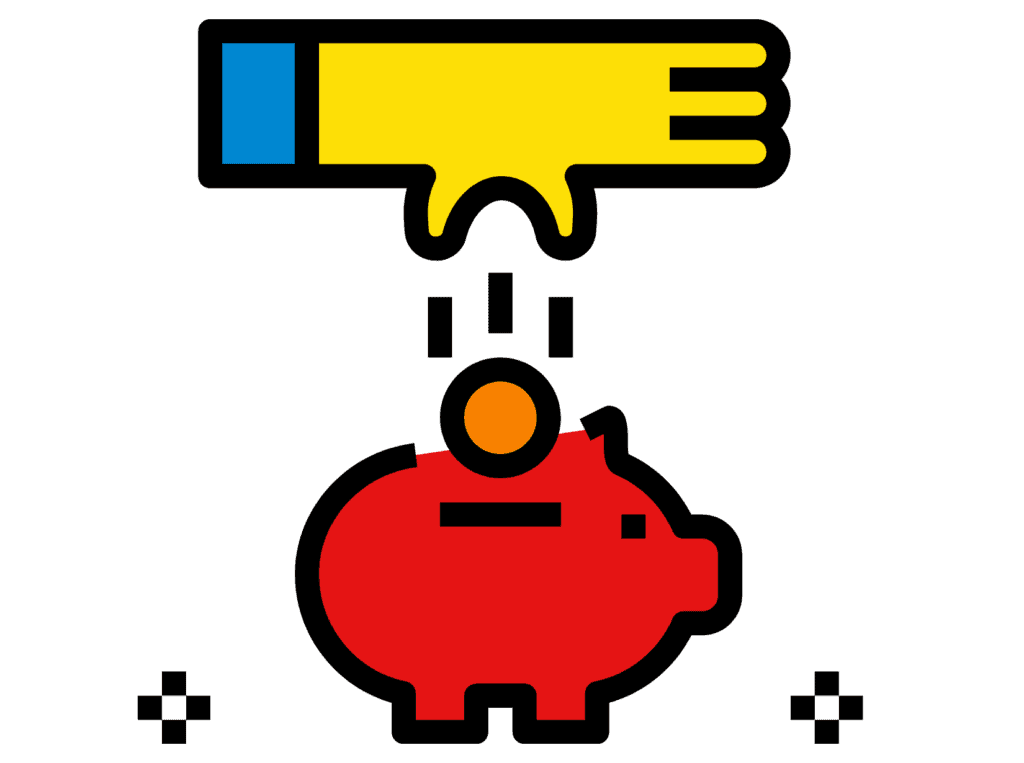
Frugality is the practice of being thrifty and avoiding waste.
FU Money
“FU money” is a term that refers to having enough money and financial independence that you are now your own boss. As a result, you can do what you want, when you want, without worrying about other people’s opinions or approval.
Generational Wealth
Generational wealth is when a family’s financial status improves from one generation to the next.
Geoarbitrage
Geoarbitrage is the practice of taking advantage of differences in the cost of living in different locations. For, e.g., living in a low cost of living area and with a high cost of living income via a remote job.
Government Securities
Government securities are financial instruments that the government issues. Examples include Treasury bills, bonds, and notes.
Grace Period
A grace period is when you can avoid paying interest on a loan. For example, many credit cards have a 21-day grace period.
Gross Income:
Gross income is your total income before taxes and other deductions are taken.
Growth Funds
Growth funds are mutual funds that invest in stocks of companies that are expected to grow at a much faster rate than the overall stock market. Apple and Amazon are two examples of companies that would be considered growth stocks.
High-Yield Fund
A high-yield fund is a mutual fund that invests in stocks of companies that are expected to pay high dividends.
House Hack
A house hack is when you live in a property that you rent out to tenants. This can help you offset your living expenses.
House Sitting
House sitting is when you live in someone’s home while away. This can be a good way to save money on rent and travel expenses.
Ibatta
Ibatta is a website that allows you to earn cash back on your online purchases.
Income Statement
An income statement is a financial document that shows your income, personal expenses, and profit or loss over a while.
Individual Retirement Account (IRA)
An IRA is a retirement account you can set up independently. There are two main types of IRAs: Traditional IRA and Roth IRA.
Index Fund
An index fund is a type of mutual fund that tracks a specific market index, such as the S&P 500.
Inflation
Inflation is when the prices of goods and services increase over time.
Interest
Interest is the fee you pay for borrowing money.
Installment Loan
An installment loan is a type of loan where you make fixed payments over time. A mortgage is an example of an installment loan.
Investment Company
An investment company is a financial institution that manages investments for clients. Examples include mutual fund companies and hedge funds.
Investment Portfolio
An investment portfolio is a collection of investments, such as stocks, bonds, and mutual funds.
Investment Strategy
An investment strategy is a plan for how you will invest your money.
Investment Vehicle
An investment vehicle is a financial product you can use to invest your money. Examples include stocks, bonds, and mutual funds.
Joint Account
A joint account is a financial account owned by multiple individuals.
Lean FIRE
Lean FIRE is a term that describes financial independence achieved by living on a very low budget.
Leverage
Leverage is when you use debt to finance an investment. For example, you can leverage a $100,000 mortgage to buy a $200,000 house.
Late Payment Fee
A late payment fee is a charge you may incur if you make a late payment on a loan or credit card.
Liability
A liability is something you owe that causes a net loss instead of a net gain. For example, a home could be considered a liability because we make monthly payments on i.
Lifestyle Creep
Lifestyle creep when you allow your lifestyle to increase along with your income. For example, if you get a raise at work, you may be tempted to spend more money on travel and dining out.
Liquid Net Worth
Liquid net worth is your total assets minus your total liabilities.
Line of Credit
A line of credit is a loan that allows you to borrow money up to a specific limit. You can use the funds as needed and only have to pay interest on the money you borrow.
Liquidity
Liquidity is the ability to convert one of your assets into cash quickly and easily.
Loan
A loan is when you borrow money from a financial institution and agree to pay it back over time with interest.
Long-Term Investing
Long-term investing is when you invest your money in assets you expect to hold for more than five years.
Market
The market is where buyers and sellers compete in trading goods and services.
Maturity
Maturity is the date on which a loan or investment will mature.
Minimum monthly payment
The minimum monthly payment is the smallest amount you can pay on your monthly credit card bill.
Mint
Mint is a personal finance app that allows you to track your spending, budget, and investments.
Money Savings Challenge
A money savings challenge is a game where you save money each week or month for a specific period.
Money Mantra
A money mantra is a phrase or saying that you repeat to yourself to help you stay motivated on your financial journey.
Money Market Account
A money market account is a type of savings account that typically offers higher interest rates than a traditional one.
Money Order
A money order is a check to pay bills or send money to someone.
Mutual Fund
A mutual fund is a type of investment that allows you to pool your money with other investors. The money is then used to buy various assets, such as stocks, bonds, and real estate. VFIAX is an example of a mutual fund.
NASDAQ
The NASDAQ is a stock market index that includes more than 3,000 companies.
Net Income
Net income is your total income minus all of our expenses.
Net Worth
Net worth is your total assets minus your total liabilities. This number tells you how much money you have left after subtracting what you owe from what you own.
Open-Ended Credit
Open-ended credit is a loan that allows you to borrow money up to a specific limit and then pay it back over time. Credit cards are an example of open-ended credit.
Overdraft Checking
Overdraft checking is a type of account that allows you to spend more money than you have in your account. The bank will then charge you a fee for the privilege.
Passive Income
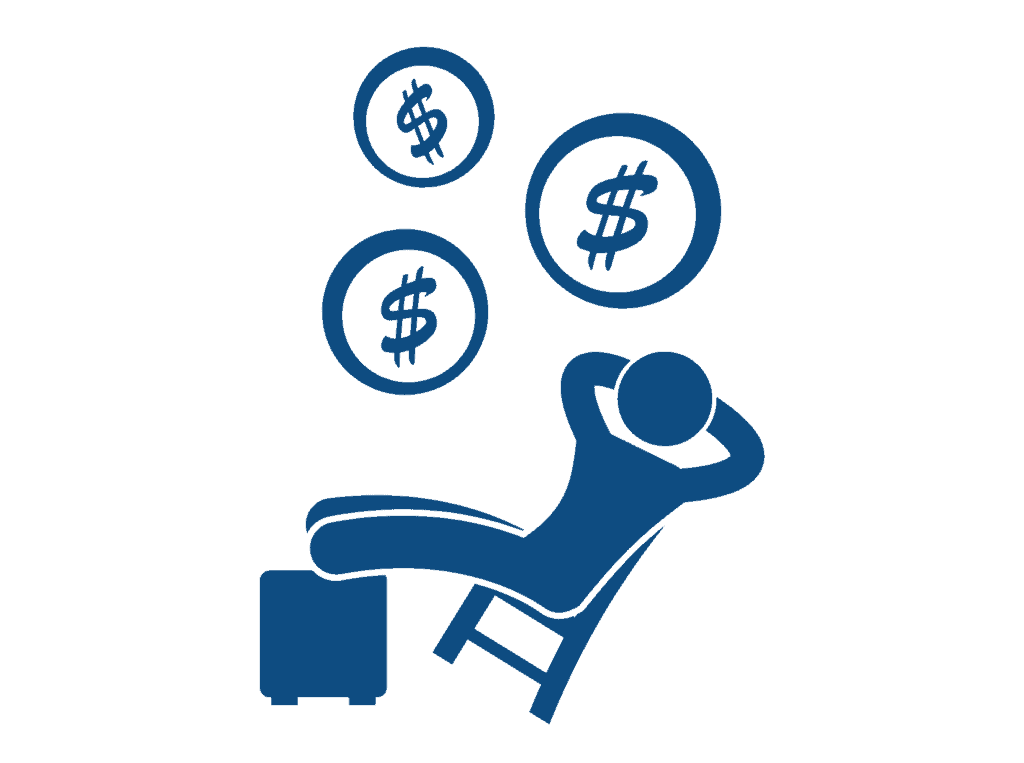
Passive income is income that you earn without having to work for it. For example, if you own a rental property, the rent you collect is passive income.
Penny Stock
Penny stocks are shares of companies that trade for less than $5 per share.
Personal Capital
Personal Capital is a financial tracking app that lets you see all your financial accounts in one place.
Positive Cash Flow
Positive cash flow is when your money is higher than your expenses.
Principal
The principal is the amount of money that you borrowed on loan.
Profit
Profit is the money you have left after subtracting your expenses from your income.
Qube
Qube is a financial tracking app that lets you see all your financial accounts in one place.
Rakuten
Rakuten is a cash-back shopping site that allows you to earn money back on your online purchases.
Recession
A recession is when the economy slows down, and people lose their jobs.
Revolving Credit
Revolving credit is a loan that allows you to borrow money up to a specific limit and then pay it back over time. An example would be Credit cards.
Secured Credit Card
A secured credit card is a type of credit card that requires you to deposit money into a savings account as collateral.
Securities
Securities are financial instruments that can be traded on an exchange. Examples of securities include stocks, bonds, and options.
Share Account
A share account is a credit union account that gives the owner a stake in the institution.
Side Hustles
A side hustle is a way to make money in addition to your regular job.
Sinking Fund
A sinking fund is a savings account you use to save money for a specific goal, such as a vacation or a new car.
Standard of Living
Your standard of living is the way you live on a day-to-day basis.
Stealth Wealth
Stealth wealth is the practice of keeping your financial status hidden from others. For example, you may drive a used car even though you can afford a new one because you are a multi-millionaire.
Stockbroker
A stockbroker is a financial professional who purchases and sells stocks on behalf of their clients.
Stock Market
The stock market is a financial market where stocks (pieces of ownership in businesses) are bought and sold.
Stop Order
A stop order is an order to buy or sell a security at a specified price. For example, let’s say you own stock in XYZ company and set a stop order to sell your shares if the stock price falls below $25. This ensures that you won’t lose money if the stock price falls.
Stop Payment Order
A stop payment order is a bank order that instructs the bank not to pay a specific check.
Systematic Withdrawal Plan
A systematic withdrawal plan is a retirement account withdrawal strategy where you withdraw a fixed amount of money each month.
Taxable Income
Taxable income is the money you earn from work, investments, and other sources minus any deductions or exemptions.
Tenancy in Common
Tenancy in common is a type of ownership where two or more people own a property together.
Transaction Fee
A transaction fee is a fee a financial institution charges for processing a financial transaction.
Travel Hacking
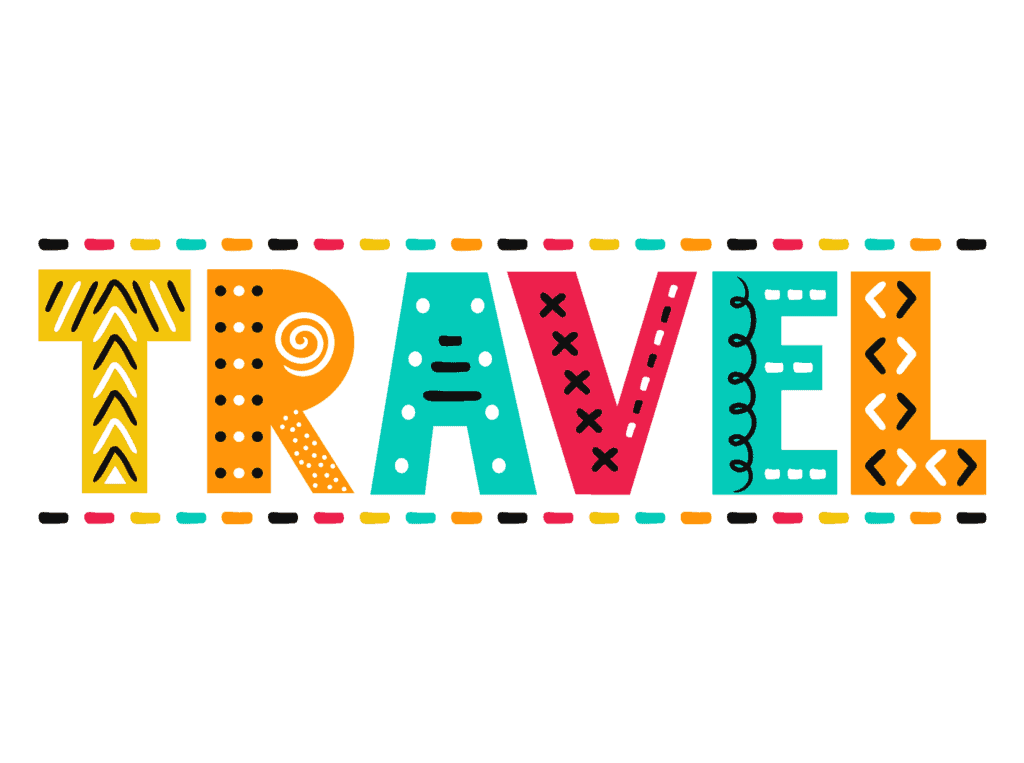
Travel hacking uses points and miles to travel for free or at significantly reduced cost.
Traveler’s Checks
Traveler’s checks are checks that can be used to withdraw cash or make purchases while traveling.
Unsecured Loan
An unsecured loan is a loan that is not backed by collateral. Student loans and credit cards are examples of unsecured loans.
Usury Laws
Usury laws protect borrowers from being charged excessive interest on loans.
Vanguard
Vanguard is a financial services company that offers investment products and services such as mutual funds and ETFs.
Variable Interest Rate
A variable interest rate is an interest rate that can change over time. AA mortgage is an example of a loan with a variable interest rate.
VSTAX
Vanguard Total Stock Market Index Fund Admiral Shares (VSTAX) is an index fund that tracks the overall stock market performance.
VTI
Vanguard Total Stock Market ETF (VTI) is an exchange-traded fund that tracks the overall stock market performance.
YNAB
You Need A Budget (YNAB) is a personal finance software that helps you budget and track your spending.
Yield
The yield is the percentage of return that the investment pays. For example, if a bond yields 3%, you will earn $3 in interest for every $100 you invest.
Zero Balance
A zero balance is a financial goal where you strive to have no debt and all of your bills paid off. This leaves you with a “zero” balance to pay each month.
Zero-Based Budgeting
Zero-based budgeting is a financial planning method where you budget every dollar you earn. This means that your income minus your expenses should equal zero.
FAQ
What do you mean by financial independence?
Financial independence has enough money to support yourself without needing to work. This means that you have enough money saved up so that you can live off of the interest and dividends from your investments.
What does the acronym FIRE stand for?
FIRE stands for financial independence, retire early. This is a movement of people striving to achieve financial independence so they can retire early.
What is the 4% rule in FIRE?
The 4% rule is a guideline that says you can withdraw 4% of your nest egg each year in early retirement and not run out of money. This rule is based on the assumption that you have a diversified portfolio of investments and that you adjust your withdrawal amount for inflation.
Is Financial Independence possible?
Yes, financial independence is possible. Of course, it will take a lot of hard work and discipline, but achieving it is possible.
How do you calculate Financial Independence?
To calculate financial independence, you need to figure out how much money you need to support yourself. This includes your living expenses, healthcare, and other necessary expenses. Once you have figured out your number, you need to save enough money to live off the interest, dividends from your investments, or rental income.
Summary
Congratulations! You have completed the Financial Independence glossary. This is an essential first step on your journey to becoming financially independent. But this is just the beginning. Now that you know all these terms and what they mean, it’s time to put them into practice.
Start by creating a budget and start saving for your future. You can achieve anything you want with a little hard work and dedication. And with this new knowledge under your belt, we are confident that you will be able to attain Financial Independence sooner than you ever thought possible.
Are you ready? Let’s make some money!
Related Articles:
- THE Financial Independence Guide (Read Now To Master Money)
- 21 Best Personal Finance Blogs (Money Tips Made Easy)
- How To Become A Military Millionaire (3 Simple Steps)
Which term in this Financial Independence Glossary has helped you the most? We’d love to hear from you in the comments below!
Hello! I'm Charles. 1st gen millionaire, real estate investor, health enthusiast, and military veteran. In the last 17 years, I have managed billions of dollars of resources for the Department of Defense. Created financial management plans that enabled fellow service members to get out of thousands of dollars in debt and tailored wellness plans that helped people reverse and eliminate high-blood pressure, pre-diabetes, and obesity. Learn more about me here.